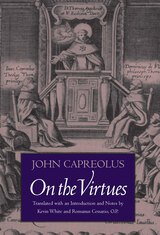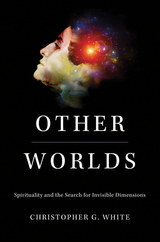8 start with O start with O

In 2005, Whiteside bought a Harley Davidson Heritage Softail, christened it “Old Blue,” and set off on a series of far-reaching motorcycle adventures. Over six years he traveled more than 15,000 miles. Part travelogue and part historical tour, this book takes the reader along for the ride. Whiteside’s travels to the Pacific Northwest, Yellowstone, Dodge City, Santa Fe, Wounded Knee, and many other locales prompt consideration of myriad topics—the ongoing struggle between Indian and mainstream American culture, the meaning of community, the sustainability of the West's hydraulic society, the creation of the national parks system, the Mormon experience in Utah, the internment of Japanese Americans during World War II, and more.
Delightfully funny and insightful, Old Blue’s Road links the colorful history and vibrant present from Whiteside’s unique vantage point, recognizing and reflecting on the processes of change that made the West what it is today. The book will interest the general reader and western historian alike, leading to new appreciation for the complex ways in which the American West's past and present come together.


Contributors. Claire Atherton, Janet Bergstrom, Kelley Conway, Sandy Flitterman-Lewis, Ute Holl, Heike Klippel, Eva Kuhn, Matias Lavin, Alisa Lebow, Brenda Longfellow, Babette Mangolte, Ivone Margulies, Michael Mazière, Eva Meyer, Sandra Percival, Jane Stein, Cécile Tourneur, Maureen Turim, Sonia Wieder-Atherton, Patricia White

On Morals or Concerning Education is an exhortation on the importance of education by the prolific late-Byzantine author and statesman Theodore Metochites (1270–1332), who rose to the aristocracy from a middle-class background but fell from favor late in life and died as a monk. As a manual of proper living and ethical guidance, the treatise offers unique insights into the heightened roles of philosophy and rhetoric at a time when the elite engaged intensely with their Hellenic heritage, part of a larger imperial attempt to restore Byzantium to its former glories.
On Morals probes hotly disputed issues in fourteenth-century Byzantine society, such as the distinction between the active and contemplative life and the social position of scholars. Metochites’s focus on the character and function of Christian faith also reflects ongoing debates regarding the philosophy of religion. Occasional autobiographical digressions offer fascinating glimpses of Metochites’s distinctive personality.
This volume provides the full Byzantine Greek text alongside the first English translation of one of Metochites’s longest works.




What do modern multiverse theories and spiritualist séances have in common? Not much, it would seem. One is an elaborate scientific theory developed by the world’s most talented physicists. The other is a spiritual practice widely thought of as backward, the product of a mystical world view fading under the modern scientific gaze.
But Christopher G. White sees striking similarities. He does not claim that séances or other spiritual practices are science. Yet he points to ways that both spiritual practices and scientific speculation about multiverses and invisible dimensions are efforts to peer into the hidden elements and even the existential meaning of the universe. Other Worlds examines how the idea that the universe has multiple, invisible dimensions has inspired science fiction, fantasy novels, films, modern art, and all manner of spiritual thought reaching well beyond the realm of formal religion. Drawing on a range of international archives, White analyzes how writers, artists, filmmakers, televangelists, and others have used the scientific idea of invisible dimensions to make supernatural phenomena such as ghosts and miracles seem more reasonable and make spiritual beliefs possible again for themselves and others.
Many regard scientific ideas as disenchanting and secularizing, but Other Worlds shows that these ideas—creatively appropriated in such popular forms as C. S. Lewis’s Chronicles of Narnia, the art of Salvador Dalí, or the books of the counterculture physicist “Dr. Quantum”—restore a sense that the world is greater than anything our eyes can see, helping to forge an unexpected kind of spirituality.
READERS
Browse our collection.
PUBLISHERS
See BiblioVault's publisher services.
STUDENT SERVICES
Files for college accessibility offices.
UChicago Accessibility Resources
home | accessibility | search | about | contact us
BiblioVault ® 2001 - 2024
The University of Chicago Press









